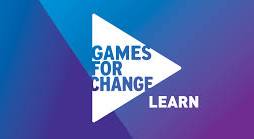Dive Brief:
- In an effort to promote better treatment and protection of students with disabilities, a new Florida law will require public K-12 schools to develop curriculum on disability history and awareness.
- For the first two weeks of October, students will learn about disability history and different types of disabilities through supplemental lesson plans or other school-related activities.
- “Disability history has not been well-publicized or understood, much less provided to the general public or kids, so I think it is a nice step forward,” said Dan Stewart, the National Disability Rights Network’s managing attorney for education and employment.
Dive Insight:
Florida's House Bill 447 was signed into law late last month, but other states have made similar legislative efforts in the past. A 2024 Kansas statute, for instance, required the state board of education to develop disability history objectives and guidelines within the existing history and social studies curriculum.
Stewart points out that some states might also include disability history alongside contributions from other marginalized communities, as part of a larger effort to diversify curriculum.
An example of this includes a 2021 Nevada law that required school districts to teach K-12 students about the “history and contributions to science, the arts and humanities of certain groups of persons,” including people with disabilities and other groups like Native Americans, LGBTQ+ and immigrants.
According to the bill text, Florida's forthcoming disability history curriculum will potentially cover key events and timelines on how services for individuals with disabilities and their civil rights have evolved, as well as the contributions of specific individuals and leaders with disabilities.
The bill divides more specific learning topics by grade level groups. Kindergarten through 3rd graders will learn about bullying through conversations about the different types and what to do if they or someone they know is being bullied. The bill also requires that they learn about physical disabilities.
For grades 4 through 6, the bill stipulates that the curriculum needs to include information on autism spectrum disorder, while 7th through 9th graders will learn about hearing impairment disabilities. In grades 10 through 12, students will learn about the different types of learning and intellectual disabilities.
Stewart said he had some concerns about deferring discussions about specific types of disabilities to different ages. For one, students can have coinciding disabilities, he said, and there are also disabilities beyond those listed that students would benefit from learning about.
“The kid with a hearing impairment might also have a learning disability, and so I worry just a little bit about the categorical siloing of disabilities, because while that's true for some kids, it's not true for others,” Stewart said.
He added that some of the language in HB 447 is a bit “permissive,” which can be a double-edged sword. While on one hand, it leaves space for schools and districts to include what they think is missing, there is also the risk that not all schools abide by the suggestions.
Stewart also acknowledged that the law is still in its early stages, making it difficult to assess the actual curriculum and implementation.
He added that as these instructional materials are developed, it is essential to center the perspective of people with disabilities, which is why he commends the bill for encouraging the state education department to collaborate with the Evin B. Hartsell Foundation – a nonprofit organization working to amplify the impact of people with disabilities.
“I've been in the disability advocacy field for 25 years, and I think one thing that keeps on showing [up] is stigma and misunderstanding about people with disabilities,” said Stewart. “I hope that this type of legislation encourages kids at an early age to understand disability as being part of the natural human experience and thus not something that should be feared or mocked or treated with suspicion.”











